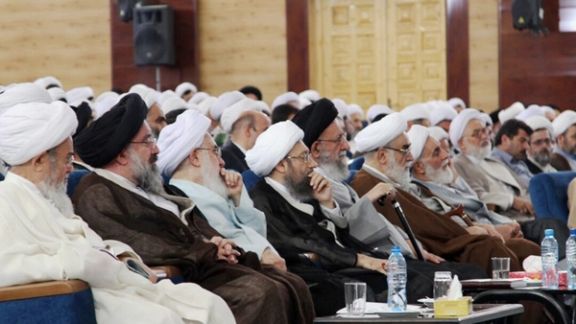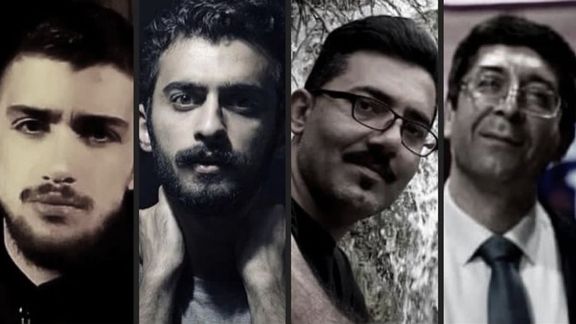Hardliner Clerics In Iran Demand More Executions, Amputations

An influential hardliner clerical group in addition to executions demands punishing Iranian protesters by cutting fingers and toes instead of just exiling them.

An influential hardliner clerical group in addition to executions demands punishing Iranian protesters by cutting fingers and toes instead of just exiling them.
In a statement Saturday, the Association of Qom Seminary Teachers urged the authorities to continue executions but use the amputation punishment to deter people from joining the protests instead of lenient punishments in the law such as exile.
The association (Jame’e Moddaresin-e Howzeh Elmiye-ye Qom) suggested that anyone who “instigates fear in society” -- supposedly by participation in anti-government protests -- is belligerent (mohareb) which in Iran's Sharia-based laws is punishable by death, crucifixion, severance of limbs, and/or exile.
Ayatollah Abbas Ka’abi, a member of the clerical group, said last week that despite normal practice in the case of murders where victims’ families can practice the “right to blood” – that is demand retribution in kind (death sentence), ‘blood money’, or forgive -- the “imam” of the society should punish a belligerent protester even if the family forgives the killer.
Another member, Ayatollah Mohsen Araki, said Friday that those who participate in the protests, whether this includes direct involvement in the killing of government forces or not, should be considered as belligerents and be found guilty of “corruption on earth.”
The clerics, who are loyal followers of Iran’s ruler Ali Khamenei and are regime insiders benefitting from power and perks, simply twisted a 1,400-year-old vague concept of a crime to fit the regime’s agenda against dissent.

“The severing of fingers of one hand and toes of the opposite foot could be effective [as a deterrent punishment]” if a person “instigates fear in society, without the involvement of the [opposition] media and without urging others to follow suit,” the clerics of the powerful association suggested while arguing that the ‘exile’ option is too lenient to “prevent crime”.
Several Shiite religious scholars this month voiced their opposition to this interpretation of Islamic law, but the harsh approach is what the regime prefers.
They also stated that even if no killing is involved, a protester’s “crime” should be punished by death if they commit it with the “goal of causing fear and a sense of insecurity in the society and knowing that these actions would be publicized domestically and abroad.” Exile would be totally ineffective in such cases, they declared, because such actions tarnish Iran's image in the international community and bear other costs for the government.
The reference to the media and publicizing acts of protest is a reminder of the regime’s extreme sensitivity to media coverage of its repressive acts, particularly by television channels abroad that broadcast in Persian.
The Islamic Republic on December 8 hanged 23-year-old Mohsen Shekari after a secret Revolutionary Court trial. Four days later Majidreza Rahnavard, also 23, was hanged on a street in Mashhad in front of a hand-picked group of insiders to call it a “public hanging”. At least forty protesters are in risk of execution or death penalty sentences by courts in nearly all of which their rights, such as the right to due process, are grossly violated.
Besides intellectuals, politicians and activists in Iran, some high-ranking clerics and former officials such as the prominent scholar Ayatollah Mostafa Mohaqeq-Damad have also condemned protester executions or urged leniency.
A top Sunni cleric, Mowlavi Abdolhamid Esmail-Zehi, who leads the Sunni Friday congregation of Zahedan in the capital of the restive province of Sista-Baluchestan, argued this Friday that the death sentences passed on protesters were not religiously justifiable and warned about the consequences of such harsh punishments. “No ruler has such authority,” he said defiantly.
The international community including various rights organizations and activists, western officials, and politicians have also condemned the recent executions and urged the government to put an end to death sentences. In the past two weeks many European parliamentarians have also offered political sponsorship to detained protesters who are in imminent danger of execution or being sentenced to death.